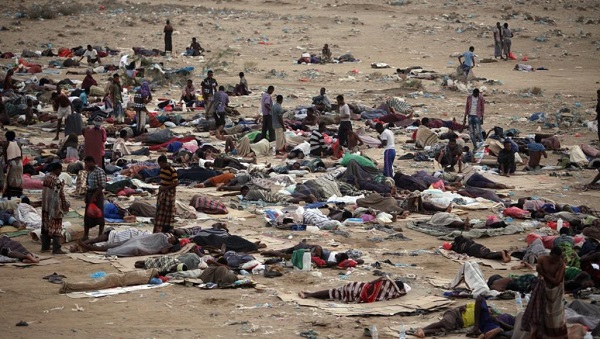On the 21st of August, 2023, Human Rights Watch (HRW) published a report on the mass killings of Ethiopians at the Yemen-Saudi border. The research indicates that the indiscriminate use of force by Saudi authorities started in March 2022 and is still ongoing. This crisis is of the utmost importance as, according to the International Organization for Migration (IOM), tens of thousands of people use this route to travel from the Horn of Africa.
The perils for Ethiopian migrants start at the sea crossing. BBC reports that 24 migrants have been missing in only one week after a shipwrecking. However, the dangers become more severe at the transit routes of Al Jawf and Sa ‘dah, where Saudi Arabian forces systematically and indiscriminately use force. The claims made by experts on the ground on the violations committed by Saudi Arabian authorities are appalling. Border forces are responsible for shelling people, arbitrarily detaining them, forcing rapes and abusing them.
Saudi Arabian authorities are also pursuing a deliberate and systematic escalation of targeted killings. HRW reports the use of explosive weapons and the orders of no quarters to shoot at people, including women and children. As a result of this, the migrant routes have become burial sites, and Saudi Arabia continues to expand security infrastructure at the border.
In this tragic scenario, the Saudi government dismissed the allegations. At the official press, they declared: ” The Kingdom have discovered no information to substantiate the allegations.”. At the UN level, the special rapporteur wrote to the Saudi government requesting explanations. At the same time, The Guardian has contacted the Saudi minister of foreign affairs and the Saudi embassy in London. However, the answer has either been a categorical denial of the allegations or a no comment by the Saudi Foreign Ministry.
Considering the circumstances on the ground, the international community has urged a call to action. HRW has repeatedly reported on the crisis in the region of Tigray (Ethiopia), where hunger and persecution represent a current threat to the Ethiopians. The rights of this population need to be ensured; however, the systematic killings at the border in Saudi Arabia and the national war risk becoming a dramatic spiral of human rights crisis. For this reason, the international community should ask for accountability to the Saudi Arabian government. The use of lethal force in an indiscriminate way can amount to a crime against humanity if pursued as a national policy of Saudi Arabia. In addition, the use of explosive weapons is prohibited by international humanitarian law.
Considering the official answers of Saudi Arabia, it is presumable that the authorities will continue to deny the allegations; nonetheless, a reaction is necessary. Every diplomatic relationship with Saudi Arabia needs to be cut, and governments must denounce the ongoing violations at the borders. In addition, even if Saudi Arabia is not part of the International Criminal Court (ICC), it is desirable to receive a statement from UN officials denouncing the blatant violations of criminal and humanitarian law.





